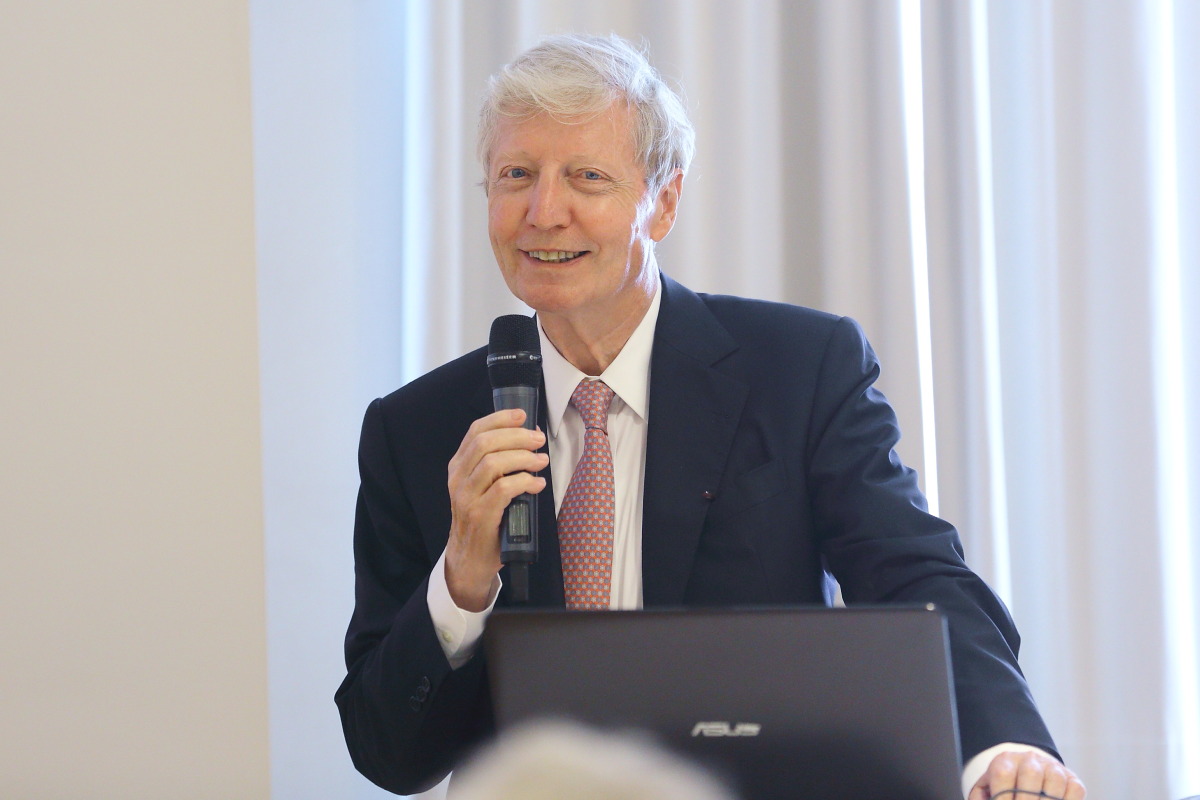Jules A. Hoffmann, Doctor of Science honoris causa

Prof. Jules A. Hoffmann is the Chair for Developmental Biology at the University of Strasbourg Institute for Advanced Study and Emeritus Research Director at the National Center of Scientific Research (CNRS), France. He dedicated much of his work to the study of the cellular, genetic and molecular mechanisms responsible for innate immunity in insects. The work of Prof. Hoffmann and his associates has provided new insights into the defense mechanisms that organisms, from the most primitive up to humans, employ against infectious agents. By demonstrating the marked conservation of innate defense mechanisms between insects and humans, the work initiated by Prof. Hoffmann and his collaborators has led to a re-evaluation of the role of innate immunity in mammals. More generally, the Drosophila model, which asserts the key role of the Toll gene in sensing infection and triggering immune responses, has enabled biologists throughout the world to make considerable progress, not only in developmental genetics and innate immunity, but also in the study of certain human pathologies and in the understanding of memory, behavior, sleep and nutrition phenomena. With Bruce A. Beutler and Ralph M. Steinman, Prof. Hoffmann was awarded the Nobel Prize for Medicine for “their discoveries concerning the activation of innate immunity” in 2011, cited by its Committee to have discovered the ‘gatekeepers’ of immunity and revolutionized our understanding of the immune system.
Prof. Hoffmann was born in Luxembourg. He obtained his Ph.D. at the University of Strasbourg in France in 1969. After two years’ post-doc research at the Philipps University of Marburg, Germany, he returned to the University of Strasbourg to continue his research work. He went on to set up the CNRS laboratory of “Endocrinology and Immunology of Insects” first within the Institute of Zoology of the University of Strasbourg and then within the CNRS Institute of Molecular and Cellular Biology in Strasbourg, which he directed from 1994 to 2006 and where he still works with some of his collaborators. He was President of the French Academy of Sciences in 2007 and 2008. He is a Member of the European Molecular Biology Organization and a Member of the German National Academy of Sciences Leopoldina and the Russian Academy of Sciences. He is a Foreign Associate member of the Academy of Sciences of the United States of America, of the American Academy of Arts and Sciences and of the American Academy of Cancer Research. For his contributions to innate immunity discoveries, Prof. Hoffmann was awarded numerous prizes, including, in recent years, the Robert Koch Prize (2004), the Balzan Prize (2007), the Rosenstiel Award (2010), the Keio Medical Science Prize (2010), the International Gairdner Award (2011) and the Shaw Prize in Life Science and Medicine (2011). He also received the CNRS Gold Medal in 2011, and in 2012, he became Officier de la Légion d'Honneur in France and was chosen as an Immortel at the Académie Française (French Academy), which comes from the inscription, “To immortality”, on the seal given to the French Academy by its founders and considered a supreme honour in the French academia.





